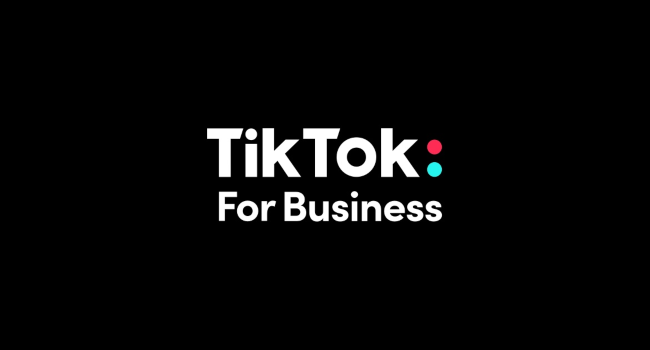Prudent use of resources is one of the simple, yet effective measures for small businesses to control costs and improve profitability. The most precious, but scarce among them is time and money.
Content writing and marketing is a creative set of activities that require time and the right human resource to produce quality content that will improve brand awareness, increase customer loyalty and drive leads.
However, companies are usually confronted with the dilemma of whether to outsource their content operations to free more time or to hire in-house staff to exercise full control over those operations.
The decision of whether to outsource or hire in-house is most often determined by how much control your business want over its processes and/or how much money you are willing to spend in order to maintain an in-house content team. Sometimes the choices are not always obvious and therefore require a careful analysis of what will best suit your business.
This article will compare and contrast outsourcing with insourcing so as to evaluate which strategy is cost-effective in relation to time and money.
In-House Content: Pros and Cons
Insourcing, also known as in-house content writing, is where a company manages all its tasks internally in order to monitor and get a grip of how each process is conducted. The advantages of this strategy are as follows:
Internal expertise: The content of a company should speak to its target audience. It requires expert knowledge and experience in the industry in question. In-house writers have in-depth knowledge of organizational needs compared to external writers.
Ultimate control: Developing content in-house affords company managers to factor in their input from the onset to make it genuine and appealing to target readers. They also have access to sensitive information that is closely monitored to prevent abuse.
Developing content from fulltime employees comes with some deficiencies including:
Skill shortage: Content development requires experts who are creative and innovative with extensive knowledge in many fields. Having in-house writers only limits the scope of the company in tapping the know-how of outsiders. In South Africa, those with this type of scarce skill are limited in supply and would usually prefer to work on freelance basis.
Time and revenue consuming: With insource content writing, companies must prepare for unforeseen situations such as employee absenteeism/turnover and maternity leaves as well as foreseen costs including hiring, orientating, inducting and training. Besides, companies must foot the bill of their office space, monthly salary with benefits such as unemployment insurance funds, bonuses, sick leave, maternity/paternity leave which will all put a strain on the bottom line.
Uncompetitive content: In-house content writers mostly produce uncompetitive content due to lack of objectivity and ability to spot deficiencies. Sometimes the content gets too promotional and biased. An outsourced content company always look out for the best and produces objective content that engage readers.
Outsourced Content: Pros and Cons
Outsourcing is contracting all or part of a company’s responsibilities to a third party because the company does not have the capacity to handle the responsibility. A company that successfully outsources its contents will enjoy the following benefits:
Cost savings: Outsourced content writers are paid on either hourly, per article or per word basis. These pricing options are way cheaper than hiring and maintaining a fulltime staff.
Specialization: Outsourcing is based on the notion that nobody can be jack of all trades. In other words, one needs to specialize, thus the outsourced company is highly equipped, specialized and has the expertise to write quality content. This frees you valuable time to focus on your core business so as to provide excellent service.
Convenience: Outsourcing your responsibilities to third party vendors gives less stress. Issues of hiring, training, reviewing and feedback management are in the hands of the outsourced company. This gives online businesses ample time to think about ways of improving their services.
Outsourcing part of your tasks to a third party however comes with a few difficulties, some of which are outlined below.
Limited knowledge: No one knows your brand better than you do. Highly specialized niche markets require the outsourced company to learn more about your products and services in order to produce content that speaks to your customers. Sometimes, there is a limit to what a third party vendor can do to elevate your brand in the manner you want it.
Less control: Outsourcing your content responsibilities means giving up a part or whole of your processes to a third party. This can create delays as a result of managing conflicts through middlemen.
As long as you can improve on communications between your company and the third party, it is most likely you will enjoy a good working relationship with less conflicts.
Empirical analysis
Now that the pros and cons of both strategies have been made bare, it is important to note that the downsides associated with outsourcing can be managed if companies are meticulous in dealing with outsourced companies.
This analysis below about the cost of fulltime content writers is mind-blowing. The real cost of writers ranges from salaries to benefits and unemployment taxes.
Salaries
The following salary figures obtained from the reputable recruitment agencies in the USA tell how much companies are expected to pay in salaries.
| Content Writing Remuneration Ranges | ||
| Source | Role | Average salary in Rand |
| Indeed.com | Web Content Writer | 724 284 |
| Indeed.com | Marketing Content Writer | 722 189 |
| PayScale | Writer | 643 091 |
| PayScale | Copy Writer | 624 030 |
| Indeed.com | Content Writer | 613 919 |
| SalaryList | Content Writer | 526 297 |
From the table, it can be observed that companies pay a whopping amount of between R526 297 to R724 284 in annual salaries, excluding benefits such as medical aid, UIF and paid leave.
Office Space and its ancillaries
Since content writing is an office-based job, companies spend much on rent, utilities, internet, furniture, computer setup and other software programs. Our study in South Africa gave approximately the following figures.
| Equipment/services cost | Amount in Rand | Annual cost |
| Utilities | 800 | 9600 |
| Rent for 5 employees office | 4500 | 54000 |
| Furniture | 18000 | 18000 |
| Computers | 18000 | 18000 |
| Internet | 3000 | 36000 |
It is important to note that some of the above costs are once off but must be replaced after some years.
Cost of content
As stated earlier, outsourced content companies charge for contents either by hourly, per article or per word basis. However, most firms in South Africa prefer to charge per article basis.
| Number of contents needed per month | 30 |
| Minimum article size | 500 words |
| Writers needed | 6 |
| Cost per article | R462 |
| Cost per month | R13 860 |
| Cost Per Annum | R166 320 |
| Savings from Outsourcing | +360 000 |
Also, note that office space with its associated rentals, internet and other costs are borne by the outsourced company. It makes a lot of business sense to outsource content writing. The huge cost-savings cannot be overlooked by companies seeking to draw attention to their brands through content marketing.



